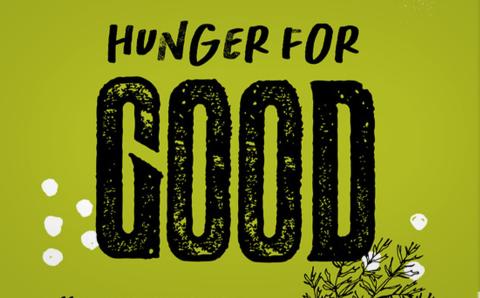To send letters to the editor, please see our guidelines at thebanner.org/letters.
Tough Love
Regarding “Tough Love” (March 2023), my experience is that tough love is never blunt, rude, nor abrupt. Bluntness, rudeness, and abruptness lack love. Tough love is loving.
Janet Smit // Toronto, Ont.
Culture War-ification
I joined the Christian Reformed Church when I was 19 years old, and I have been a faithful member of the CRC ever since. … I read and hear with great alarm about “The Culture War-ification of the CRC” (June 2023) and wonder how this can happen in the CRC. I truly appreciated Brandon Haan’s article. I think like him when he says, “The fact is that, far from functioning as a countercultural critic of the forces militating against Christ and his kingdom, we’ve instead adopted the strategies of those forces and … become pawns in the broader culture war instead of serving as the thoughtful, prophetic critics we are invited to be.” I want us to become a loving denomination that is hospitable to LGBTQ+ Christians who want to worship our Lord. Do we exclude others from our congregations?
Pam Adams // Sioux Center, Iowa
Cognitive Dissonance
I’ve spent much of my life in relative awe of the men and women who are certain they know the mind of God. I thank Jake Masselink for highlighting that perhaps my jealousy was ill-advised (“The Bible and Cognitive Dissonance,” May 2023). It might be time to consider 2 Timothy 4:3-4 and Matthew 18:6. God is love—that’s what we teach. Eternal judgment belongs to him, not you or me.
Rob DeWit // Kalamazoo, Mich.
Is sin unknowable? Masselink called for moral agnosticism, stating, “Judgment of another person is God’s domain.” That is true as it applies to eternal life/condemnation. Yet we aren’t called to accept biblically defined sin. It’s sinful to allow murder, adultery, or racism without lovingly informing others (that) there is a better way to live according to the Bible. Masselink used a bloated definition of cognitive dissonance (CD). A more precise definition is discomfort triggered by the person’s knowledge/belief clashing with new information/experiences. It’s a place where prior knowledge is questioned, new knowledge is assimilated into old, and sense is made. It does not assume that a person ignores data, becoming more entrenched in their prior beliefs. We don’t “suffer” from CD. If Christians recognize their CD, allow questioning of beliefs, go to the Bible, and pray for truth/wisdom, God will help us make sense of his world and his plans. No one should claim to know exact knowledge of God’s will; however, God gave us the Bible as a guide. “What does it say?”, “What does it mean?”, and “How does it apply to our lives?” are questions we should ask to make sense of God’s Word. This is humble cognitive dissonance.
Stacey Pylman // Caledonia, Mich.
Mission Work
Resonate Global Mission’s new director, Kevin De Raaf, emphasizes the importance of listening to people’s stories and having our hearts broken for global issues (“Kevin DeRaaf Appointed as Director of Resonate,” July/August 2023). He believes this brokenness leads to prayer and discernment, questioning if we dare to let our hearts break for God’s mission. As a retired missionary, I’m curious about De Raaf’s statement. My heart breaks as I recall our time in Sierra Leone, where the church flourished amidst war and poverty. However, the current strategy change and budget cuts have left struggling village churches unable to support pastors. Church growth now seems focused on wealthier urban areas, and it saddens me deeply.
Mary Kortenhoven // Grand Rapids, Mich.
Unity
I, too, lament the fracturing of unity within the body of Christ (“Will We Ever Learn What Unity Means?”, May 2023). And I, too, stand ready to worship and serve with those who, like myself, fall short of living up to God’s expectations. But the issue is not whether failure to meet one specific expectation is worse than failure to meet another. The issue is whether we grieve and repent of our failures or excuse and even celebrate them; that’s why Scripture instructs us to practice self- and mutual discipline. Surely it is our shared grief and repentance over sin, and our intention to follow Christ whatever the cost, that must form the basis of our unity in Christ.
Duane Nieuwsma // Byron Center, Mich.
This article hit home with me and meant more than I can say. For 65 years I’ve had a problem with some of the CRC’s take on human sexuality. Mr. Polinder did an excellent job expressing the thinking I’ve always had: What makes a failure of the seventh commandment so much worse than the failure of any other commandment? Why had the CRC singled that out? Why continue to single out the seventh commandment again now by making it confessional? Why can’t we think deeper and consider what effect our actions could have on a person long term? It’s so reassuring to me to at last be able to read my feelings and thoughts in The Banner, no less.
Evelyn Stoffer // East Lansing, Mich.
Ron (Polinder) asks why the seventh commandment takes precedence over others. It doesn’t. No one is saying a person struggling with the sin of homosexuality is any worse than someone struggling with any other sin. What is being said is that a person cannot embrace that lifestyle unrepentantly and enter the kingdom of God, just like someone who embraces stealing or another vice unrepentantly cannot enter the kingdom of God (1 Cor. 6:9-10).
Peter Habegger // Tucson, Ariz.








